Myriam Delgado
On the Fitness Landscapes of Interdependency Models in the Travelling Thief Problem
Feb 28, 2022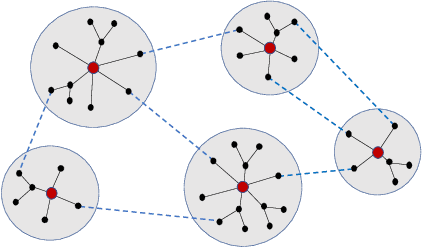


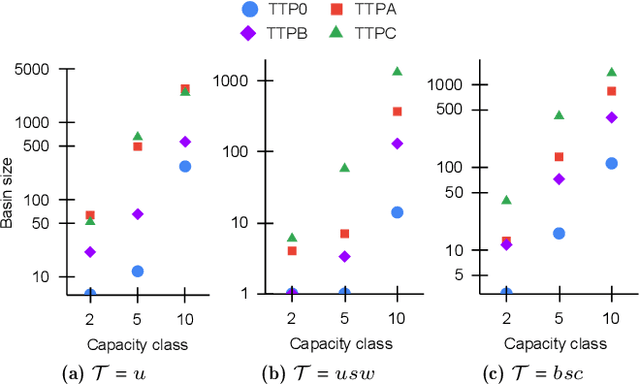
Abstract:Since its inception in 2013, the Travelling Thief Problem (TTP) has been widely studied as an example of problems with multiple interconnected sub-problems. The dependency in this model arises when tying the travelling time of the "thief" to the weight of the knapsack. However, other forms of dependency as well as combinations of dependencies should be considered for investigation, as they are often found in complex real-world problems. Our goal is to study the impact of different forms of dependency in the TTP using a simple local search algorithm. To achieve this, we use Local Optima Networks, a technique for analysing the fitness landscape.
On the performance of multi-objective estimation of distribution algorithms for combinatorial problems
Jun 04, 2018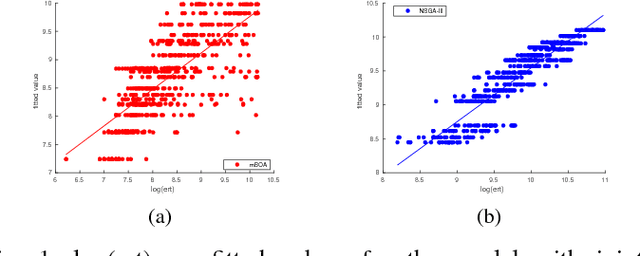
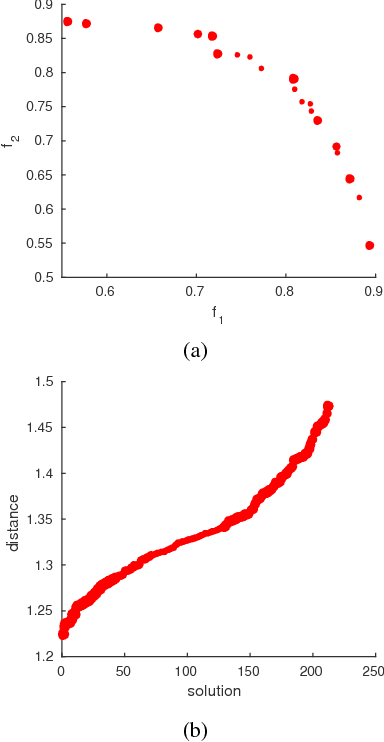
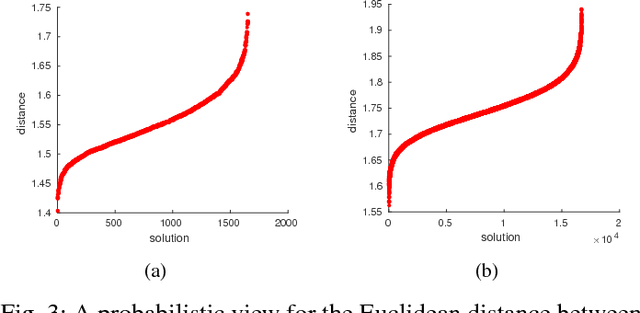
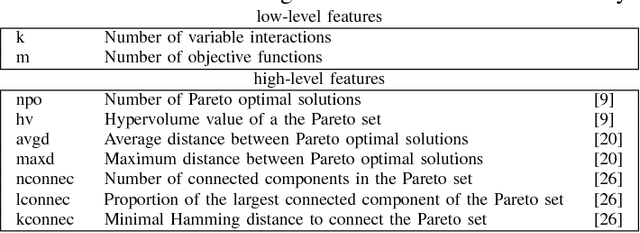
Abstract:Fitness landscape analysis investigates features with a high influence on the performance of optimization algorithms, aiming to take advantage of the addressed problem characteristics. In this work, a fitness landscape analysis using problem features is performed for a Multi-objective Bayesian Optimization Algorithm (mBOA) on instances of MNK-landscape problem for 2, 3, 5 and 8 objectives. We also compare the results of mBOA with those provided by NSGA-III through the analysis of their estimated runtime necessary to identify an approximation of the Pareto front. Moreover, in order to scrutinize the probabilistic graphic model obtained by mBOA, the Pareto front is examined according to a probabilistic view. The fitness landscape study shows that mBOA is moderately or loosely influenced by some problem features, according to a simple and a multiple linear regression model, which is being proposed to predict the algorithms performance in terms of the estimated runtime. Besides, we conclude that the analysis of the probabilistic graphic model produced at the end of evolution can be useful to understand the convergence and diversity performances of the proposed approach.
 Add to Chrome
Add to Chrome Add to Firefox
Add to Firefox Add to Edge
Add to Edge